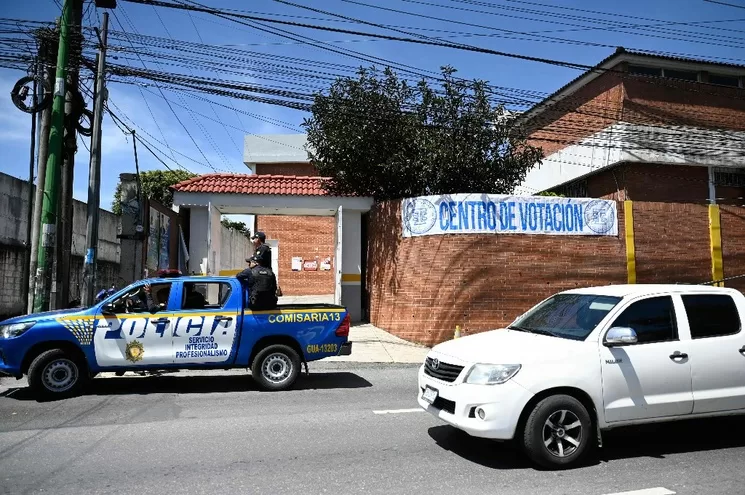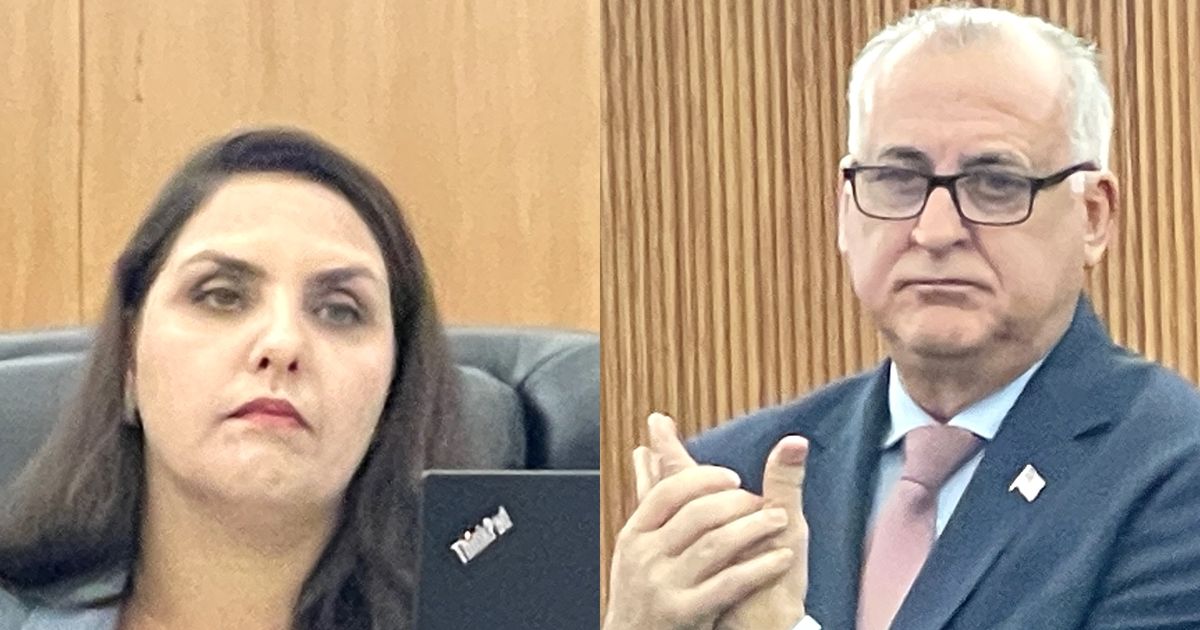Guatemala. The abuse of the legal system by the State to prosecute, in some cases convict justice operators and journalists, neutralize and even imprison political opponents, relevant social actors and journalists – the so-called lawfare– has been applied to the letter in Guatemala for at least four years.
For the figures who defy the powers, the threat that can come their way at the least expected moment is a legal notice that “a case is being put together” on the desk of a Public Ministry by order of a judge of a chain of command that begins in the office of Attorney General Consuelo Porras.
The “case” can be an investigation without a real basis. The courts, presided over by stalwart magistrates, issue judgments upon request. At this unique electoral situation in Guatemala, which has an unexpected possibility of a change of scenery on the horizon, this mechanism has become a political weapon.
In the press, Juan Gerardo Guerrero, the lawyer for the party of presidential leader Bernardo Arévalo, Movimiento Semilla, has defined the moment as a judicial war, recognized by the term lawfareto refer to the legal attacks that the political group is receiving from the Public Ministry.
The onslaught has a clear line of command that the Non-Fiction digital newspaper describes in its edition yesterday. The executing arm is the robed Fredy Orellana. This judge is the author of the recent legal moves to derail the course of the elections. As soon as it was known that Arévalo had slipped in as second in the ballot, he received “evidence” of illegalities within the party and via express ordered the cancellation of the Seed Movement. Since no action was taken in this regard, he ordered a criminal investigation against the registrar of the Supreme Electoral Tribunal (TSE), which did not proceed either.
Guerrero points out that in the judicial offensive they have not been allowed to defend themselves or have access to the investigation documents.
“They have instrumentalized the justice system to make believe that the Seed Movement is a criminal structure, and for that reason it had to be suspended and cancelled. We have not had access to the ministerial folder despite the fact that we have requested it on more than 20 occasions.”
Orellana has had a leading role in the history of arbitrariness. He was the one who sent José Ramón Zamora, director of The newspaper, one of the most reliable media in the country. The journalist has been in prison for a year. The diary disappeared, along with his file. Eight communicators who wrote there are exiled due to various judicial persecutions.
He was also the one who sentenced an anti-corruption prosecutor from Quetzaltenango, Virginia Laparra, who dared to denounce a colleague for corruption. It was Orellana who issued the arrest warrant against the anti-corruption prosecutor who was part of the judicial branch of the International Commission against Impunity, Juan Francisco Sandoval, now in exile in Washington. And he was also the one who sent Juan Francisco Solórzano Foppa, one of Zamora’s lawyers, to jail, whom he left legally defenseless.
The chain of arbitrary lawsuits reached such levels in this election that it provoked a strong international reaction, since in its last phase it is the Supreme Electoral Tribunal (TSE) itself that is under attack.
The newspaper The time reported in its evening edition yesterday that the TSE magistrate, Blanca Álvaro, and another of her magistrates have received threats via text messages, of the type: “We are going to c*** on you and your family”, a situation that was reported by the lawyer. But Orellana would only be the bishop in a chess game managed from above by the current anti-corruption prosecutor, Rafael Curruchiche, imposed in office by his boss, prosecutor Porras.
Curruchiche has been the strategist of the maneuver to get Semilla and Arévalo out of the electoral game. He alleges that in the 2018 minutes of the party’s registry there are 613 names that do not have their identification number, for which he assumes that they are “false or invented”. There are another 184 repeated names. And more than a thousand irregularities that are still to be clarified. No evidence has been presented in public. But the prosecutor has announced that after the 20th he “does not rule out” issuing arrest warrants against the leaders and members of Semilla under accusations of organized crime.
The boss and director of this plot is Attorney General Consuelo Porras.
The website of the popular radio program Con criterio published yesterday an opinion by journalist Juan Luis Font (in exile in Mexico) that Curruchiche “will foreseeably be the first head sacrificed by Porras in an effort to remain in charge of the Public Ministry. But the sacrifice will be insufficient.
According to this forecast, Porras (whose term expires until 2026) will also have to leave. , “Because at this point, she already knows that she is going to be prosecuted, sooner rather than later, for the damage that she has caused to justice.”
Regarding the findings of the prosecution on the alleged false signatures of Semilla, several lawyers and politicians have asked why, if these irregularities are from 2018, they are being prosecuted right now.
The answer could be in politics and not in law.
As the figure of Arévalo appeared as the most probable winner, the far-right sectors rushed to make a new political alignment behind Sandra Torres, the opponent for the National Unity of Hope party, in order to prevent at all costs the arrival of a politician who does not respond to their interests.
And behind this political movement, the name of an actor of the most extreme causes of the right and of the legacy of repression left by the years of the armed conflict that ended 27 years ago has reappeared: Ricardo Méndez Ruiz.
The Salvadoran digital newspaper The lighthouse yesterday published a broad profile of this character, leader of the Foundation against Terrorism created in 2013. He is, this outlet maintains, the best-known face behind the complaints that have ended with some twenty prosecutors and lawyers arrested, transferred or fired, and with 28 judges and prosecutors in exile.
“Although many lawsuits come from the Public Ministry, the Judiciary or private individuals, Méndez Ruiz is the image of the criminalization of these justice operators, who ensure that the complaints are founded.”
According to this review, it was retired Air Force officer Moisés Galindo who advised Méndez to form this organization. Galindo was the defender of a lieutenant accused in the case of the murder of Bishop Juan Gerardi, and of former President Otto Pérez Molina in a matter of corruption.
Méndez Ruiz’s father was Secretary of the Interior in the dictatorship of José Efraín Ríos Montt.





